MERIEAU David
L'incubateur Produit en Bretagne : essai de compréhension et de modélisation
Publié le 13 septembre 2011 – Mis à jour le 29 mars 2012
Thèse en Sciences de Gestion soutenue le 29 juin 2011
Notre recherche consiste à essayer de faire comprendre ce qu’est l’incubateur Produit en Bretagne. Elle vise principalement à répondre à la question suivante : « Quels sont les attributs qui peuvent permettre l’ébauche d’un modèle d’incubation performant pour l’incubateur Produit en Bretagne ». Afin de construire en marchant, puisque nous avons participé activement à la création et à la gestion de l’incubateur Produit en Bretagne, nous avons mené une recherche-intervention que nous avons même fini par qualifier de participative. En effet, au moment où nous avons commencé notre thèse, nous avons été responsable de l’incubateur étudié qui était en phase de création. Cette recherche qualitative, basée sur une proximité forte avec notre terrain et, notamment, avec les 19 porteurs d’idées hébergés dans l’incubateur depuis 2006, nous a permis de faire de nombreux apports. Cette recherche permet de positionner l’incubation au centre du processus entrepreneurial et, notamment, dans le domaine de la création d’entreprises innovantes. Grâce à cette recherche, nous pouvons aussi mieux cerner le champ d’intervention de l’incubateur Produit en Bretagne. Nous avons alors noté que le fonctionnement des incubateurs à dominante technologique serait à revoir, afin de s’assurer que toutes les conditions d’accès aux facteurs clés de succès (FCS) de la création d’entreprises, soient véritablement données aux porteurs d’idées intégrant ces incubateurs. Dans le cadre d’une recherche-intervention, nous avons pu agir positivement sur notre terrain et le faire évoluer tout en confortant le mode opératoire concernant le fonctionnement de l’incubateur Produit en Bretagne. Nous souhaitons souligner l’importance de nos quatre statuts différents (intervenant-chercheur, intervenant-expert, responsable de l’incubateur, intervenant-enquêteur) et de la proximité avec notre terrain, qui nous ont permis de régénérer en permanence la connaissance produite, dans un climat de confiance totale.
In our research, we are making a description and an analysis of how is working “Produce in Britanny incubator”. At the same time, we were doing our research, we did set-up this new incubator in Britanny. For this reason, we have doing an intervention-research that we did qualified, at the end, as a participative one. We did work out some contributions, as we are close to our study area with 19 people getting some ideas (to set-up new companies), in our incubator and since 2006. This research allows us to clarify the position of our incubator inside the creation process of new and innovative companies. Our research lets us understand our intervention ground of Produce in Britanny incubator. We did put in light the fact that technological incubators do not give good opportunities to access to keys factors of success to set-up new companies. With our intervention-research, we did act in a positive way in our study ground, that is to say, in the incubator we are managing. At the same time, we were able to make it evolving and keeping good elements regarding its operational way. At the end, we would like to emphasize the fact that we did regenerate our intellectual contribution, during 4 years, in links with our 4 status (researcher, expert, manager of an incubator, leader in investigation).
Mots-clés : Incubateurs et pépinières. Création d’entreprises et processus entrepreneurial. Confiance et échanges d’informations. Intelligence Economique et Knowledge Management. Coopérations et coopétitions.
Key words : incubators, innovative companies, trust, information, Knowledge Management, cooperation, coopetition.
Directeur de thèse : Robert PATUREL
Membres du jury :
Franck LASCH, Professeur HDR, Groupe Sup de Co Montpellier
Katia RICHOMME-HUET, Professeur HDR, Europed
Robert Paturel, Professeur, Université de Bretagne Occidentale
Boualem ALIOUAT, Professeur, Université de Nice Sophia Antipolis
Sylvain BIARDEAU, Professeur, Université Jean Moulin Lyon 3
Président du jury : Boualem ALIOUAT
Mention : Très honorable
Equipe d'accueil : MAGELLAN
In our research, we are making a description and an analysis of how is working “Produce in Britanny incubator”. At the same time, we were doing our research, we did set-up this new incubator in Britanny. For this reason, we have doing an intervention-research that we did qualified, at the end, as a participative one. We did work out some contributions, as we are close to our study area with 19 people getting some ideas (to set-up new companies), in our incubator and since 2006. This research allows us to clarify the position of our incubator inside the creation process of new and innovative companies. Our research lets us understand our intervention ground of Produce in Britanny incubator. We did put in light the fact that technological incubators do not give good opportunities to access to keys factors of success to set-up new companies. With our intervention-research, we did act in a positive way in our study ground, that is to say, in the incubator we are managing. At the same time, we were able to make it evolving and keeping good elements regarding its operational way. At the end, we would like to emphasize the fact that we did regenerate our intellectual contribution, during 4 years, in links with our 4 status (researcher, expert, manager of an incubator, leader in investigation).
Mots-clés : Incubateurs et pépinières. Création d’entreprises et processus entrepreneurial. Confiance et échanges d’informations. Intelligence Economique et Knowledge Management. Coopérations et coopétitions.
Key words : incubators, innovative companies, trust, information, Knowledge Management, cooperation, coopetition.
Directeur de thèse : Robert PATUREL
Membres du jury :
Franck LASCH, Professeur HDR, Groupe Sup de Co Montpellier
Katia RICHOMME-HUET, Professeur HDR, Europed
Robert Paturel, Professeur, Université de Bretagne Occidentale
Boualem ALIOUAT, Professeur, Université de Nice Sophia Antipolis
Sylvain BIARDEAU, Professeur, Université Jean Moulin Lyon 3
Président du jury : Boualem ALIOUAT
Mention : Très honorable
Equipe d'accueil : MAGELLAN

Je consulte le magazine de l’actualité partenariale et des relations entreprises de l’iaelyon
Mise à jour : 29 mars 2012
